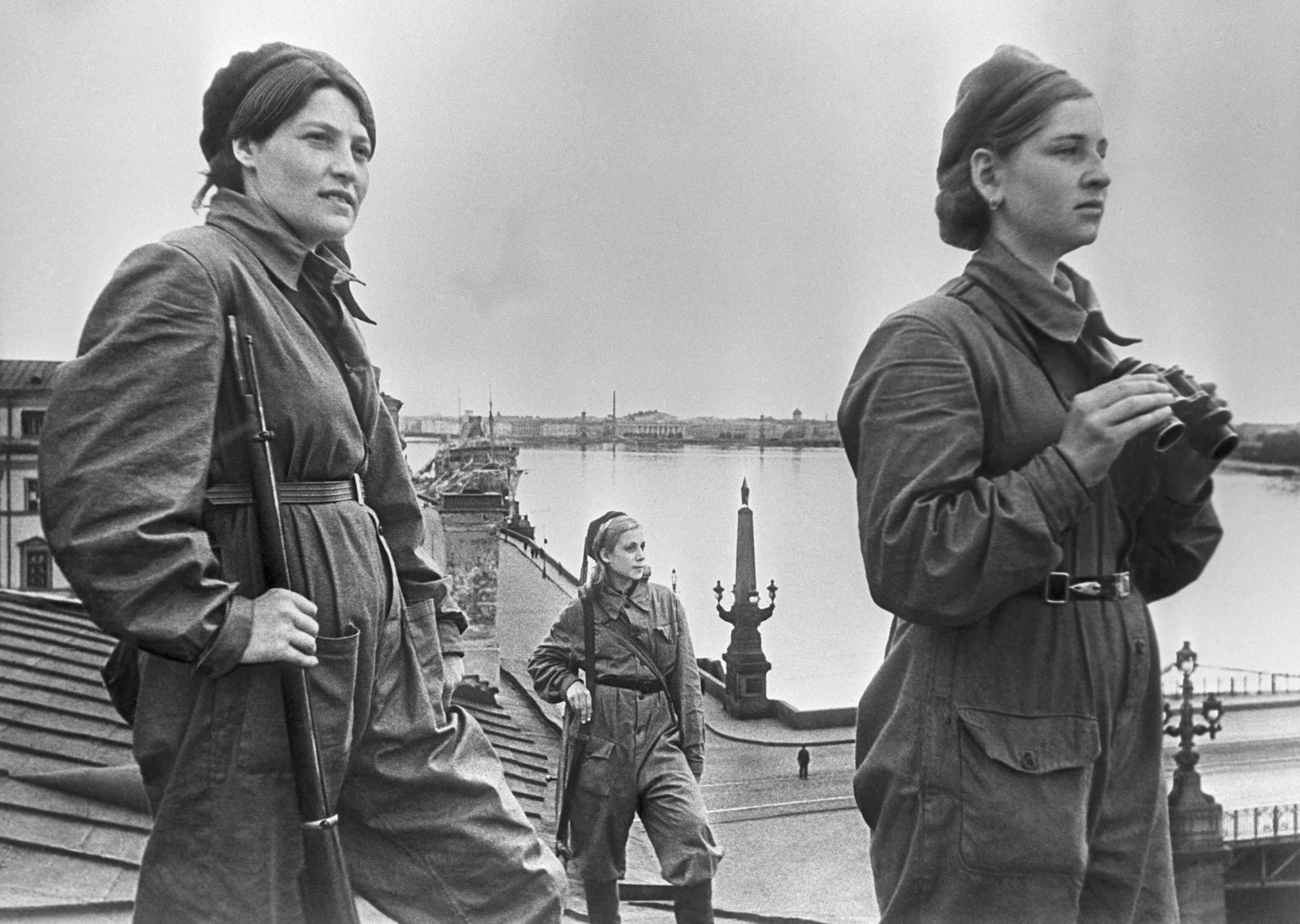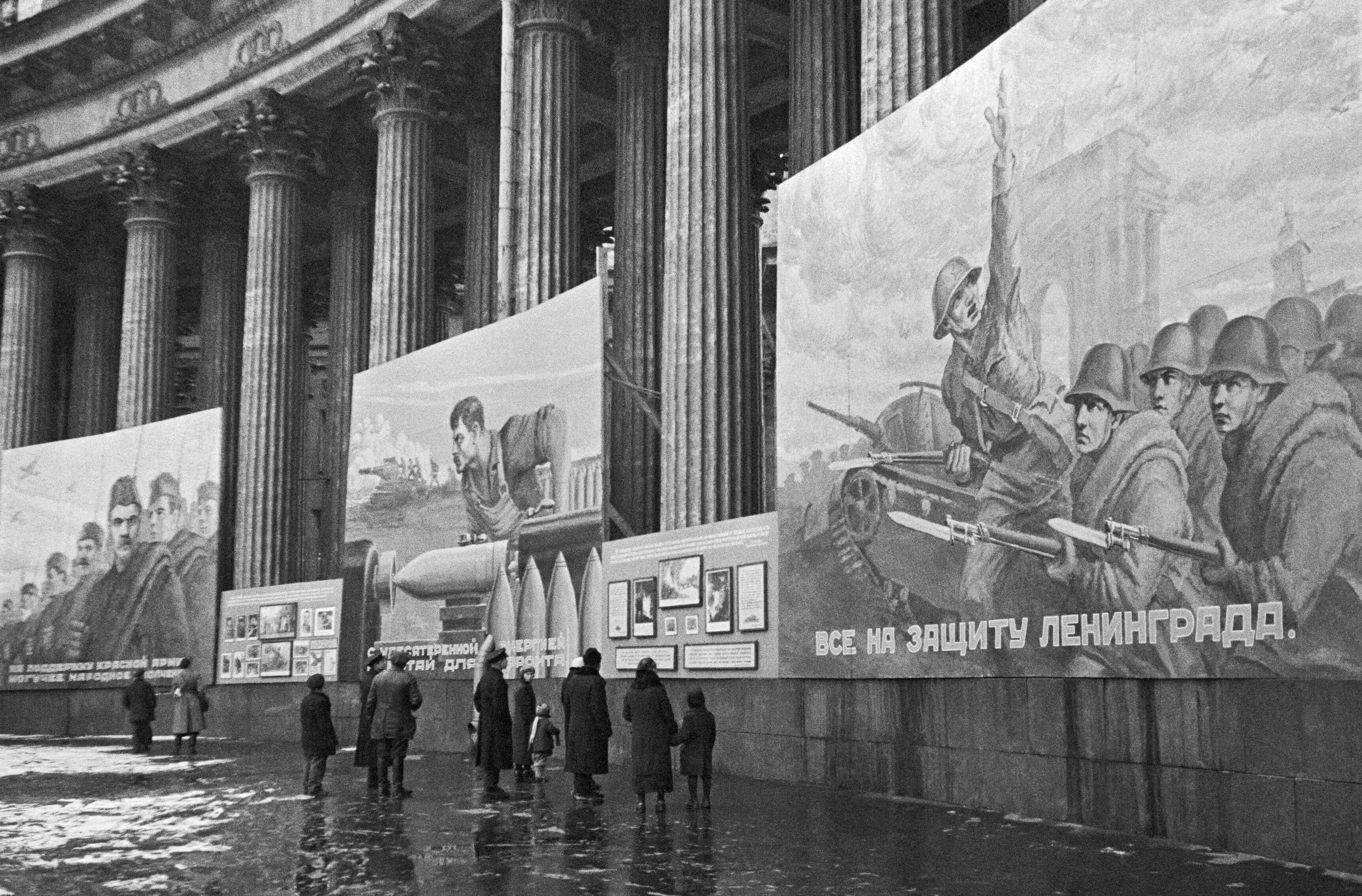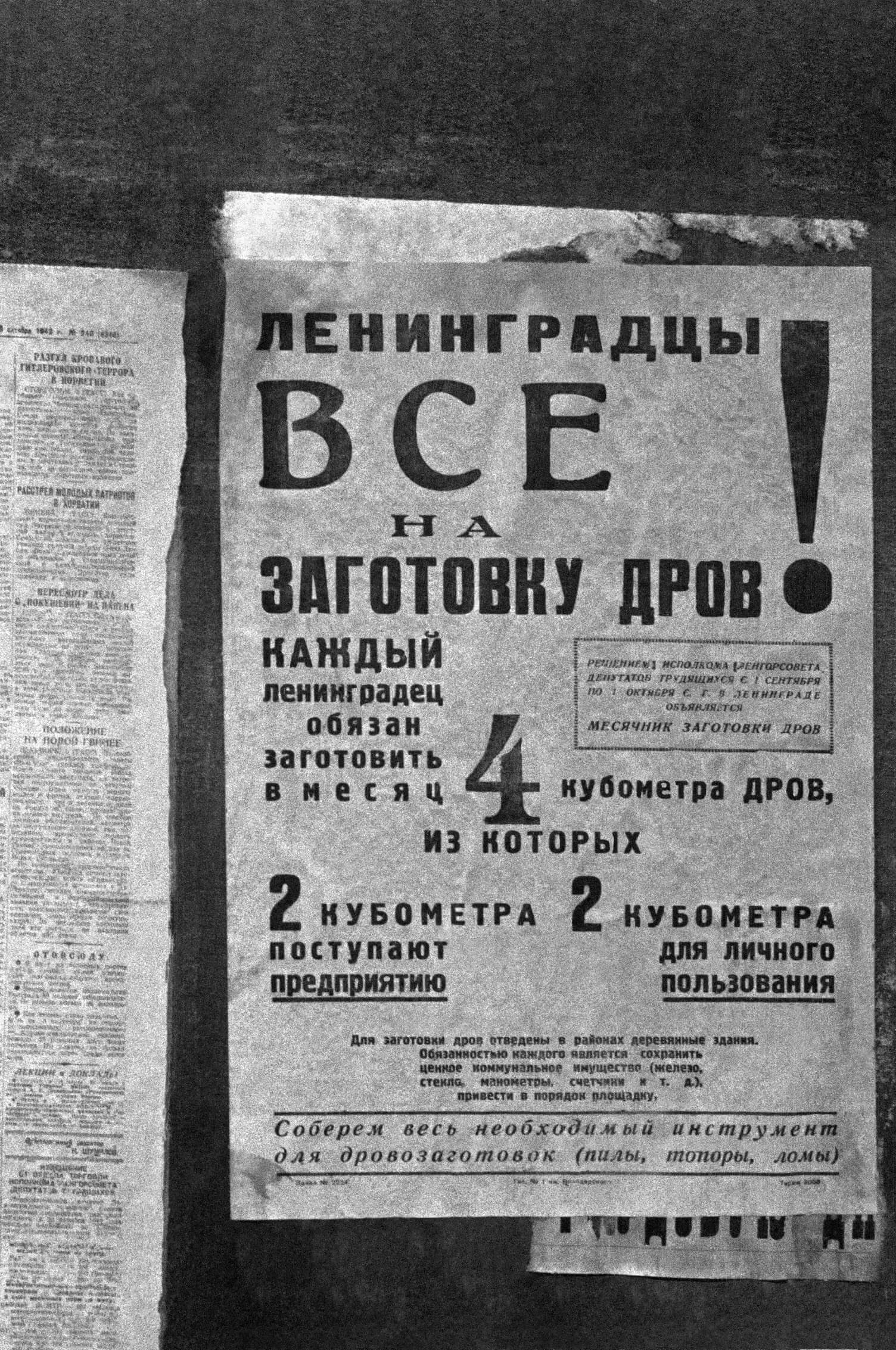From the radio program "Bergholz"

Dear Comrades,
Tomorrow is New Year. 1942 will begin. Leningrad has never seen such a year before. It goes without saying that every one of you knows very well what kind of year it will be. No matter how difficult the situation, New Year will come!
We can celebrate 1942 in our hometown. With our army, we have not surrendered our town to the Germans. We are surrounded, but we are not prisoners of war, we are not slaves. This is already a great thing.
It is true that we are in a difficult situation. For the last five months, the enemy has been trying to destroy our will to live, to break our spirits, to shake our confidence in victory. But we believe... no, we don't just believe, we know that we will win! We have already driven the Germans out of Moscow. Victory will come. We will have it. And Leningrad will again be a warm, happy and cheerful city.
Now I would like to read a poem called "Letter from the Kama River."
I know - far away on the banks of the Kama River a mother is suffering.
What should I write to my mother who is far away?
How can I reassure her? What kind of lies can I tell her? My mother wrote each and every letter on the postcard with her concern and love.
I always write as if I were praying.
"My daughter, my daughter,
Please, stay healthy."
Oh, I'd do anything to make my mother feel better
I only write the truth to my mother
Don't worry about me,
"Mom, I'm okay.
Don't worry, it's okay
I'm doing my best to protect the town together with everyone.
To avoid being taken prisoner, the greatest humiliation in the world.
I have my mother's blood in me
The blood says, "Even in death, do not take me prisoner!"
Don't worry, mom
I'm not afraid, I won't give in, I won't run away
I have the unyielding spirit that you raised me to have.
do not worry
I have no doubts and I have plenty of strength left
Now is the time to demonstrate the perseverance to victory that Lenin taught me.
Don't worry, mom
I'm thinking about my friends with their friends too."
…To my mother far away, I write:
I wrote the truth
I won't write that my old apartment is broken.
I won't write that my brother was injured.
I won't write about how I've aged, how little bread I eat, how little sleep I get
I think it would be more true not to write it.
Even if I write it down, my mother won't know everything.
Someday we'll heal our wounds and get everything back
A long, peaceful, warm sleep and the first hum of the morning
And the sun shines on the other side of the bright glass window
I appeal to my acquaintances
"Write the truth to your mother"
Please tell me what the future holds
This isn't a complaint about how hard it is...
May 2, 1942

Leningrad - Front Line
Comrades, I would like to talk to you about the Leningrad front.
A week ago I went to one of the checkpoints at the entrance to Leningrad, where the military council was handing over the regiments their flags. While the Red Army was checking the IDs of my colleagues, I was looking at the high wall of the factory, where bullet holes were here and there, and posters, appeals, and leaflets were pasted everywhere. I thought that these things should be preserved and taken to a museum, and that in the future people would stop in front of this wall with reverent feelings, looking at a piece of living history that is eternal. There were notices on what to be careful of, what to wear. The most common notices were warnings to be careful of fire. After many years, outsiders will not understand why these notices were there.
This notice had been hanging in the window of a certain luxury store for a long time.
"Citizens! We will transport the body to the grave on a sled. We will also transport other daily necessities..."
"We are selling lightweight coffins that are no longer needed."
What tragedies and special circumstances lie behind these announcements about daily life?
Yes, these city walls are, so to speak, a public diary made of stone - the diary of the entire city and of each and every citizen of Leningrad. Of course, we cannot yet look at them calmly, and it is painful to read them.
But let's get closer to that wall and take a look at, for example, last year's announcements.
"Comrades of Leningrad, dear friends!
"Our beloved hometown is now under threat from the attack of the German Fascist troops. The enemy is entering Leningrad. Leningrad has become the front line. The enemy is at the gates of the city."
"People of Leningrad, remember: if you cultivate 0.15 hectares of land, you can grow cabbage, radishes, onions and carrots. This will be enough vegetables to feed a family for a year."
The fascists were wrong. We are human beings, not rabbits. We are proud people, people who love life. We fought a battle against death, and in the midst of it we developed new medicines and cures for our diseases. Our sacrifices were great, but we won.
The Leningrad Public Library is one of the largest collections of books in the world, but one of its triumphs was that it stayed open all winter. There were only two lights in the lending department and the books smelled of cold death. But librarians worked busily in the dark preparing books for hospitals and mobile libraries.
The library received an inquiry that was unusual.
In a town under siege, simple things like starting a fire become difficult. Matches were still delivered before, but now they are not. So the library receives inquiries about how to make flint, how to set up a factory in the town to make flint, what to do with candles, etc. The librarians respond to these inquiries and try to find the necessary literature. In these cases, modern methods are not of use, so they search for old books from the 18th century to find out how to make a candle.
(Translated by Mitsuru Eguchi)
